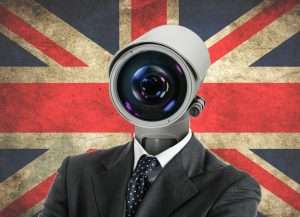 |
| pic from the ZDNet article |
An attack on privacy
There is a global siege on privacy. Governments all over the world have introduced legislation (sometimes secret) which forces email, internet or data storage providers to track what you do and make that data available to their governments. This, of course, also means third parties who gain access to the storage systems can see and abuse it. And because so many of us have put so much of our data at just a few providers, we're at great risk as events like last week's shutdown of hundreds of Google accounts did show.While Google, Dropbox and others lure customers in with 'free' data storage and great online services, governments benefit from centralized data storages as it makes it easy for them to hack in or demand data from these companies.
Why this surveillance?
While governments usually claim they need access to this data to find terrorists or child pornography, experts point out that it will not be helpful at all. As multiple experts (even internally) put it, growing the haystack makes it harder to find the needle. Intelligence agencies are swamped with data and nearly every terrorist attack in western states over the last decade took place despite the agencies having all information they would have needed to prevent it. The Paris attackers, for example, coordinated their attack using plain SMS messages. The Guardian thus rightly points out that:"Paris is being used to justify agendas that had nothing to do with the attack"which has become a familiar refrain after nearly every terrorist attack.
Indeed, we all know the argument But you have nothing to hide, do you? and indeed, we probably don't. But some people do, so they'll try to avoid being seen. That being illegal won't change their behavior...
And as Phill Zimmermann, the inventor of the PGP encryption pointed out:
"When privacy is outlawed, only outlaws will have privacy"
So not terrorists. Then what?
Experts agree that the vast majority of these surveillance and anti-privacy laws have little or no effect on real criminals. The crime syndicates, corrupt politicians and large corporations evading taxes and anti-trust/health/environmental laws, they DO have something to hide, and thus they would use encryption or avoid surveilled communication methods even if it were outlawed.However, ordinary citizens, including grass-roots local activists, charitable organizations, journalists and others, who DO have nothing to hide, would be surveilled closely. And with that information, the real criminals mentioned earlier - crime syndicates, corporations or corrupt politicians - would have weapons in hand to keep these citizens from bothering them. Whistle blowers can be found out and killed (like in Mexico), journalists can be harassed and charged for trivial transgressions (like was recently done at the US pipeline protest) and charities can be extorted.
What can we do?
Luckily, there are initiatives like the Stanford Law Schools' Crypto Policy Project which aim to train, for example, journalists in the use of encryption. Tools and initiatives like Signal, PGP email encryption, Let's Encrypt and Nextcloud provide the ability for users to protect themselves and their loved ones from surveillance. More importantly, these at the same time making it harder and more costly to conduct mass surveillance.There is nothing wrong with governments targeting criminals with surveillance but just vacuuming up all data of all citizens that might, some day, be used is a massive risk for our democracy. We all have a responsibility to decentralize and use tools to protect our privacy so those who need it (press, activists and others) have a place to hide.
No comments:
Post a Comment
Say something smart and be polite please!